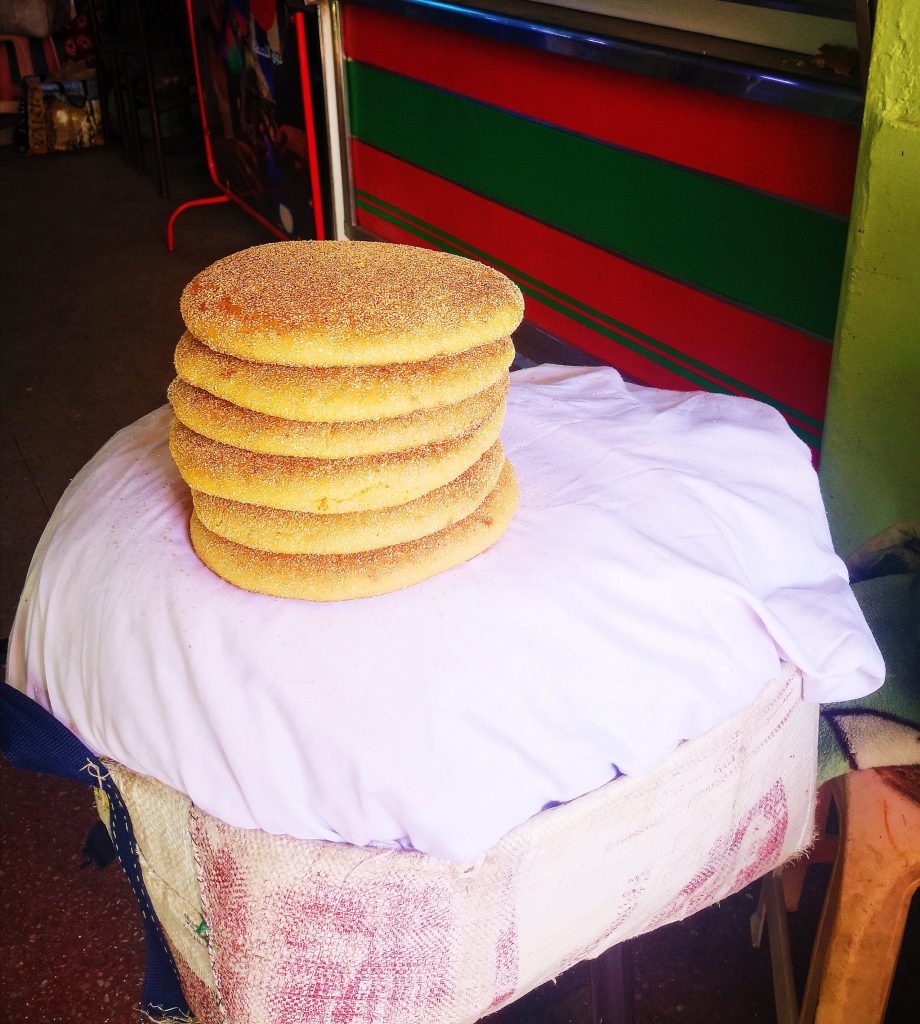On March 2 2020 the first Covid case was confirmed in Morocco, and 18 days later the country declared a state of emergency and a lockdown that started on 20 March and has been extended a few times to last for a period of 14 weeks.
While this decision has prevented a wild outbreak, it left severe impacts on the country’s economy. Case in point, small businesses and street vendors in Ifrane have been hit hard by this pandemic, especially after Al Akhawayn University went fully online considering that this university’s students play a big part in Ifrane’s economy. Female vendors, notably, have witnessed great economic loss that agitated their lives.
How did the confinement affect these women?
Women who sell bread in Ifrane’s local market make part of the disadvantaged communities in Ifrane, and asking about the impact that this pandemic had on them showed two opposite sides of the spectrum. Fatima, mother of three children, states “We haven’t sold any bread, we just sat home.” She describes the times of lockdown as “dark times” especially for people with no fixed jobs like herself and her husband. “The youngest of my children is still a baby, so I need to cover the price of milk and diapers, etc.” a task that became almost unachievable. Luckily, she profited from help and feels that little by little, things are getting better, “We struggled a lot during the lockdown. Now, we are thankful to God.”
“This bread is our only source of income, and many families are living from the money they make from it.”
Kaltoum, a bread seller in the market
However, not all women had the same chance as Fatima. Kaltoum, who sells in the same alley, has not benefited from any aid. She recounts that “During the pandemic, we took loans and survived on whatever we had.” But no donation or support was offered to her despite neighbors being aware of her precarious financial state. Tears welled in her eyes as she told the story of her husband leaving her and their two girls after 20 years of marriage, “He [her husband] was dismissed from his job, with no source of income to support us, and he couldn’t afford the house rent, so he left us. We have not heard of him since.” Currently, she is the one carrying the family and looking after her two girls as they pursue their studies, “I am the one paying the rent now, and taking every cent I collect to my girls and to pay loans.” In her case, things are improving but not as much as she wishes them to be. The money she is making is barely getting them through the day, “This bread is our only source of income, and many families are living from the money they make from it.”

How do Al Akhawayn’s students fit into this?
The day the university opened its gates back, the town saw a glimpse of light. Fatima says that “Now that the university is open, we sell everything. Nothing is wasted and we don’t take leftovers back home.” She also thanks the students and wishes them the best of luck with their studies.
“Now that the university is open, we sell everything. Nothing is wasted and we don’t take leftovers back home.”
Fatima, a bread seller in the market
Along these lines, Kaltoum says that “Outside holidays, Al Akhawayn’s students are the ones who animate Ifrane.” She explained that girls from the university buy bread and stock it in fridges which makes a good income resource for them even if it is not sufficient. Through it all, Fatima with her positivity, and Kaltoum with her honesty, kept repeating one word: Alhamdulillah (Thank God). They do not want much, but they are in need of financial support. Still, they refuse to beg on the streets and prefer to make their own living in spite of the hurdles in their path, one of which is some market supervisors and few shop owners being against them and their activity. “They [shop owners and authorities] won’t even let us sit on these chairs and sell our bread.” Kaltoum told us about this ongoing struggle that only worsens their situation and adds to their anguish.
*All quotes are self-translated from Moroccan Arabic dialect to English.


